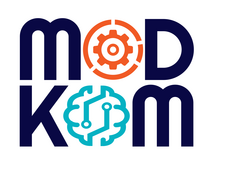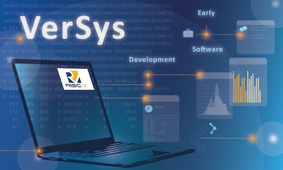
Research Departments
- Agents and Simulated Reality 5
- Cognitive Assistants 2
- Cyber-Physical Systems 2
- Educational Technology Lab 1
- Innovative Factory Systems 5
- Intelligent Networks 1
- Robotics Innovation Center 3
- Smart Enterprise Engineering 1
Search narrowed by:
Displaying results 1 to 10 of 17.
Research Departments
- Agents and Simulated Reality 5
- Cognitive Assistants 2
- Cyber-Physical Systems 2
- Educational Technology Lab 1
- Innovative Factory Systems 5
- Intelligent Networks 1
- Robotics Innovation Center 3
- Smart Enterprise Engineering 1






